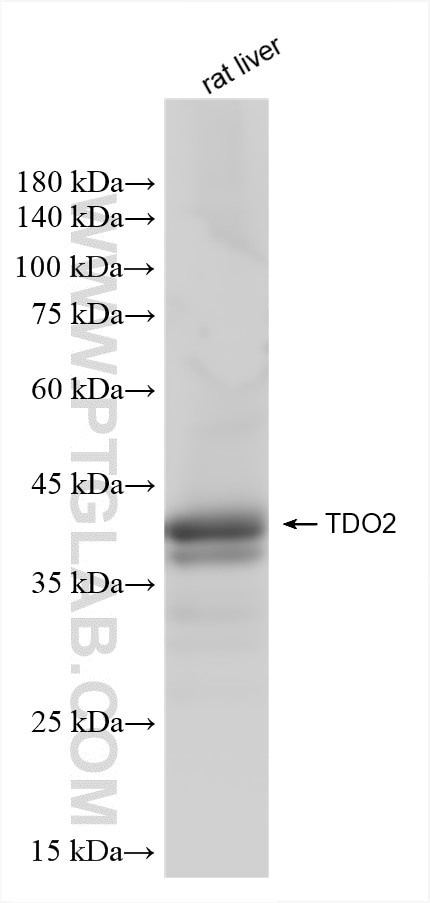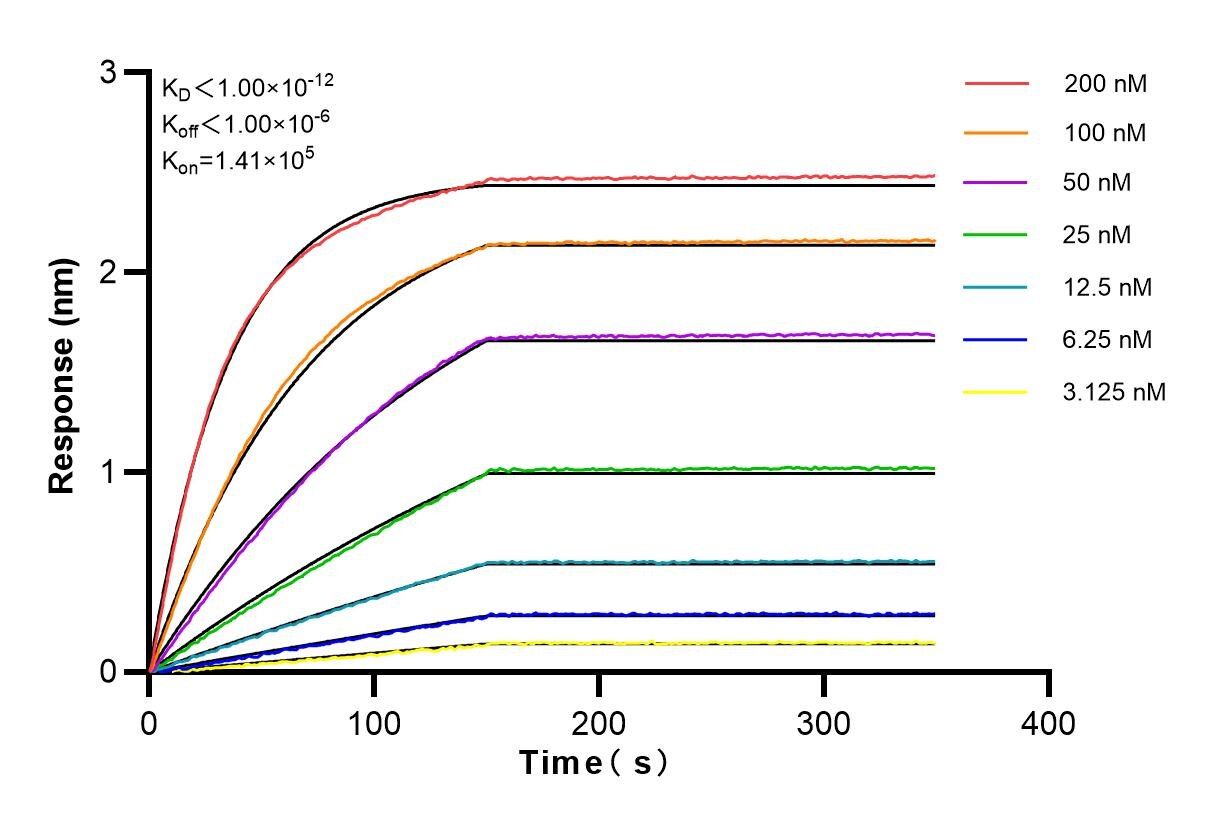Tested Applications
| Positive WB detected in | rat liver tissue |
Recommended dilution
| Application | Dilution |
|---|---|
| Western Blot (WB) | WB : 1:5000-1:50000 |
| It is recommended that this reagent should be titrated in each testing system to obtain optimal results. | |
| Sample-dependent, Check data in validation data gallery. | |
Product Information
83236-2-RR targets TDO2 in WB, ELISA applications and shows reactivity with human, rat samples.
| Tested Reactivity | human, rat |
| Host / Isotype | Rabbit / IgG |
| Class | Recombinant |
| Type | Antibody |
| Immunogen | TDO2 fusion protein Ag8531 Predict reactive species |
| Full Name | tryptophan 2,3-dioxygenase |
| Calculated Molecular Weight | 406 aa, 48 kDa |
| Observed Molecular Weight | 40-50 kDa |
| GenBank Accession Number | BC005355 |
| Gene Symbol | TDO2 |
| Gene ID (NCBI) | 6999 |
| RRID | AB_3670913 |
| Conjugate | Unconjugated |
| Form | Liquid |
| Purification Method | Protein A purification |
| UNIPROT ID | P48775 |
| Storage Buffer | PBS with 0.02% sodium azide and 50% glycerol , pH 7.3 |
| Storage Conditions | Store at -20°C. Stable for one year after shipment. Aliquoting is unnecessary for -20oC storage. 20ul sizes contain 0.1% BSA. |
Background Information
TDO2 (tryptophan 2,3-dioxygenase), IDO1 (indoleamine 2,3-dioxygenase 1) and IDO2 are three enzymes that catalyze the amino acid tryptophan into kynurenine in the kynurenine pathway (PMID: 23090118, 28469468). TDO2 plays an important role in neurological diseases such as Alzheimer's disease, Parkinson's disease and autism. Overexpression of TDO2 promoted tumor cell survival and was correlated with tumor grade and poor prognosis in triple negative breast cancer, brain tumors and esophageal squamous cell carcinoma. TDO2 may be a potential therapeutic target in some cancers. (PMID: 21976023, 30134247)
Protocols
| Product Specific Protocols | |
|---|---|
| WB protocol for TDO2 antibody 83236-2-RR | Download protocol |
| Standard Protocols | |
|---|---|
| Click here to view our Standard Protocols |





